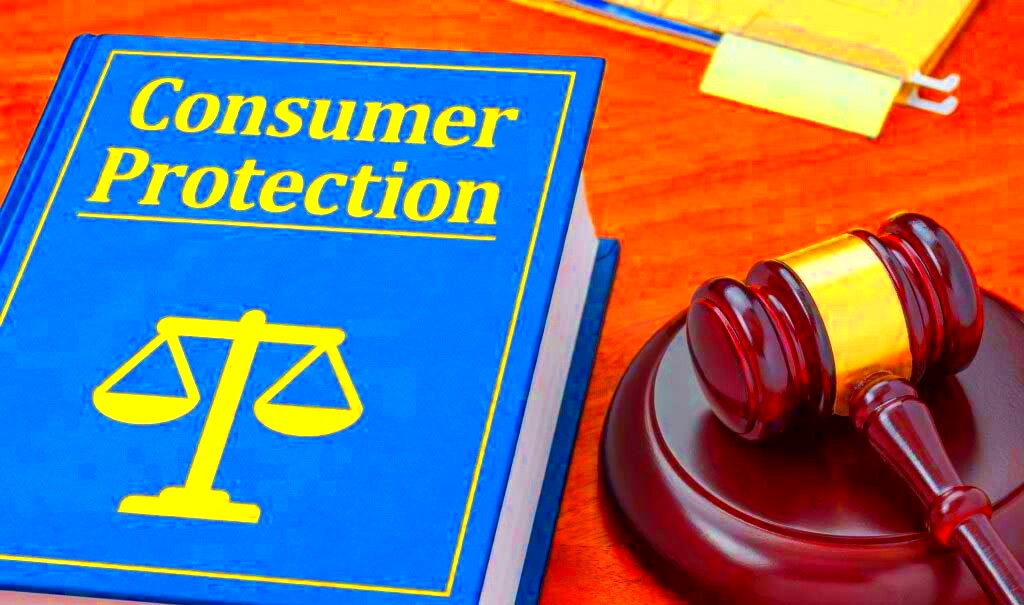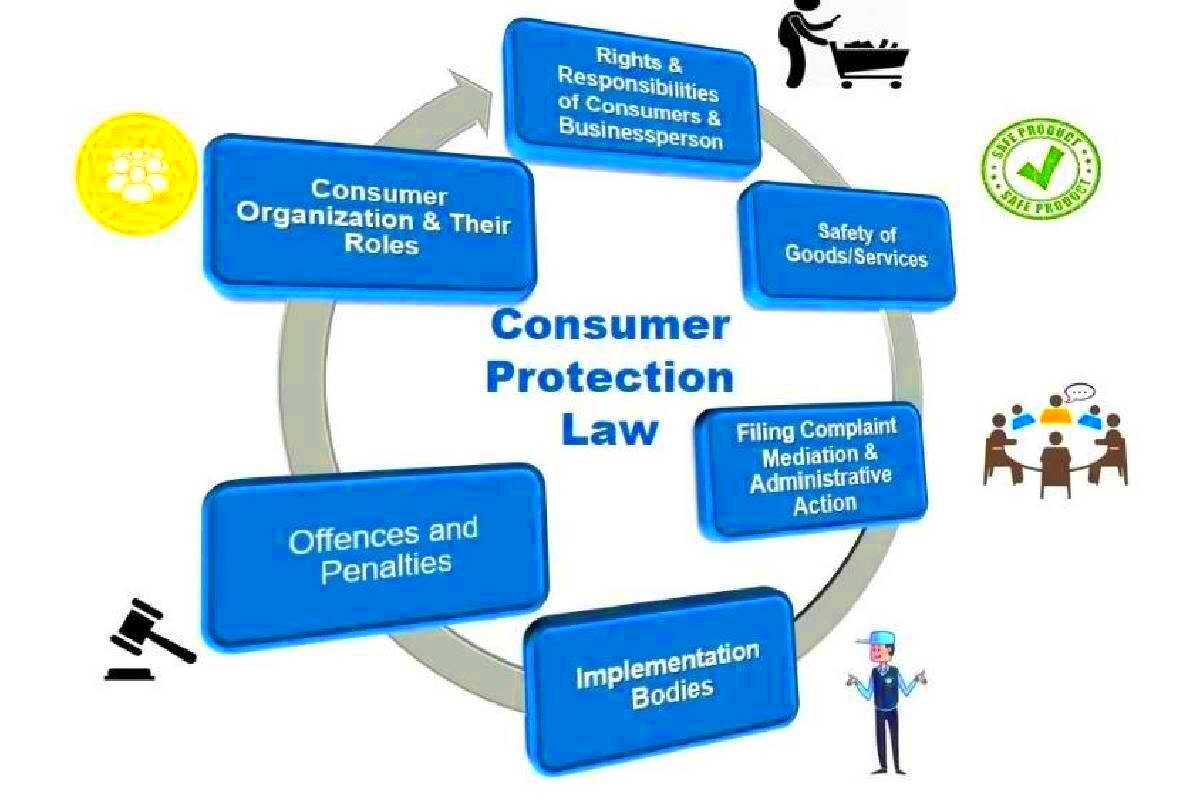Understanding New Jersey Consumer Protection Laws
In New Jersey, it is very important for all residents to be aware of consumer protection laws. The purpose of these laws is to protect consumers from unfair actions, misleading advertisements, as well as swindling practices. By understanding the rights you have when buying goods or services, you will have a better chance at making informed decisions about your purchases while also avoiding cases of exploitation. This blog post will explore New Jersey’s consumer protection laws in detail focusing on the rights you have thereunder, significant regulations put in place and how to go about the situation when your rights are violated.
Overview of Key Consumer Protection Laws in New Jersey

Providing consumer protection in New Jersey is well established and has various laws which regulate the different areas of consumers’ transactions. Some of these notable laws include:
- New Jersey Consumer Fraud Act: This act prohibits deceptive acts or practices in the conduct of any trade or commerce.
- Truth in Consumer Contract, Warranty and Notice Act: This law requires that certain consumer contracts are written in understandable language and clearly outline the rights of consumers.
- New Jersey Lemon Law: If you’ve purchased a defective vehicle, this law provides remedies to obtain a refund or replacement.
- Fair Credit Reporting Act: This law ensures that consumers have the right to dispute inaccurate information in their credit reports.
Each of these statutes has a notable function in safeguarding shoppers and guaranteeing impartiality on the market place.
Rights of Consumers Under New Jersey Law

Consumers in NJ have several rights which are meant to protect them during their transactions. Following are some of the basic rights:
- Right to Information: You have the right to receive clear and accurate information about products and services before making a purchase.
- Right to Fair Treatment: Consumers should be treated fairly and should not be subjected to deceptive practices.
- Right to Safety: Products sold must meet safety standards, ensuring that they do not pose a risk to your health.
- Right to Redress: If you are wronged, you have the right to seek remedies, including refunds or repairs.
When you understand your rights you can defend upon yourself in any commercial exchange and even ask for justice if necessary.
How New Jersey Enforces Consumer Protection Laws
In the state of New Jersey, various governmental agencies take their time in making sure that consumer rights are protected strictly by the law. The New Jersey Division of Consumer Affairs takes on the responsibility for enforcing these laws which involve listening to complaints lodged by the consumers against certain businesses suspected to be contravening this legislation; and then settling those issues through enforcement actions directed at such companies. This is how they work:
- Complaint Handling: Consumers can file complaints online or through a toll-free number. The Division investigates these complaints and can mediate between consumers and businesses.
- Legal Actions: If a violation is confirmed, the Division can take legal action against businesses, which may include fines, penalties, or other sanctions.
- Public Awareness: The Division also works to educate consumers about their rights through workshops, brochures, and online resources.
This forward-thinking technique assists in sustaining an equitable marketplace and safeguards the consumer against any fraudulous actions.
Common Violations of Consumer Protection Laws
Regrettably, many firms do not obey laws regarding consumer protection. So here are some usual violations that you need to know:
- False Advertising: This occurs when a business misrepresents the quality or features of a product to entice consumers.
- Unfair Billing Practices: Charging hidden fees or billing for services not rendered falls under this category.
- Failure to Honor Warranties: Businesses must honor warranties and guarantees they offer; failing to do so is a violation.
- Door-to-Door Sales Fraud: High-pressure sales tactics used in door-to-door sales can lead to consumer exploitation.
These infringements can be recognized to help you see when your rights are encroached and take the necessary steps.
Steps to Take if Your Consumer Rights Are Violated
In case you suspect a breach of your rights as a customer, it is important to act. Here’s how you can proceed:
- Document Everything: Keep records of all communications, receipts, and contracts related to the transaction. This evidence will be crucial.
- Contact the Business: Start by reaching out to the business to resolve the issue. A simple phone call or email may clear up misunderstandings.
- File a Complaint: If the issue isn’t resolved, file a complaint with the New Jersey Division of Consumer Affairs. They can assist in mediating disputes.
- Seek Legal Advice: If the violation is serious or the business refuses to cooperate, consider consulting a lawyer who specializes in consumer rights.
- Share Your Experience: Informing others about your experience can help prevent them from falling victim to the same issues.
Not only are these actions aimed at enabling you to seek for justice, they also go a long way in fostering an equitable market for all.
Resources for Consumers in New Jersey
It is essential to understand where to find assistance and information in October 2023 so that you can get your rights protected as a consumer in New Jersey. Luckily, there are several valuable resources available to assist you. These are some of the key points you can rely on:
- New Jersey Division of Consumer Affairs: This is the primary state agency dedicated to consumer protection. Their website offers a wealth of information, including how to file complaints and learn about your rights. You can visit them at njconsumeraffairs.gov.
- Better Business Bureau (BBB): The BBB helps consumers find trustworthy businesses and provides information about complaints against companies. Check out their website for ratings and reviews.
- Local Consumer Organizations: Various local nonprofits focus on consumer advocacy and education. They can provide support and resources tailored to your community’s needs.
- Legal Aid Services: If you need legal help, organizations like Legal Services of New Jersey offer free or low-cost legal assistance to eligible residents.
- Consumer Reports: This magazine and website offer unbiased product reviews and tips for smart shopping, helping you make informed decisions.
Utilization of these resources can help you in knowing how to navigate the market in the right way while advocating for your rights.
Frequently Asked Questions About Consumer Protection Laws
Behaviours of the consumers to protection laws are very complicated hence such laws tend to confuse many people. These are some frequently asked questions that may make everything easier:
- What should I do if I encounter false advertising? Document the advertisement and contact the business directly. If unresolved, file a complaint with the New Jersey Division of Consumer Affairs.
- Are there time limits for filing a complaint? Yes, there are statutes of limitations for different claims. It’s best to act as soon as possible after discovering the violation.
- Can I sue a business for violating consumer protection laws? Yes, you have the right to seek legal action, especially if you have suffered financial loss due to the violation.
- What is the Lemon Law? The Lemon Law in New Jersey protects consumers who purchase or lease defective vehicles, allowing them to seek refunds or replacements.
- How can I stay informed about my consumer rights? Regularly visiting the New Jersey Division of Consumer Affairs website and subscribing to consumer newsletters can keep you updated on your rights and protections.
How many of these responses do you think can aid you in gaining more confidence as you maneuver through consumer rights and learn how to go about tackling different problems?
Conclusion on the Importance of Understanding Consumer Rights
Today’s market requires a more significant knowledge of consumer rights than ever before. This knowledge empowers one to make better choices and enables him or her to advocate for himself or herself in cases of difficulties. Although aimed at setting a just and equal playing field in the market, consumer protection laws in New Jersey can only be effective if consumers are aware of them.
Having access to various laws, rights and resources will enable one to counter unfair treatments from business people and question their behaviors. Be it with a spoiled commodity, false advertisement or any other related consumer situation; it is worth recalling that seeking justice is within your reach. One of the best means of protecting oneself from violations of individual privileges is through knowledge and demanding accountability creates a healthier environment for all.


